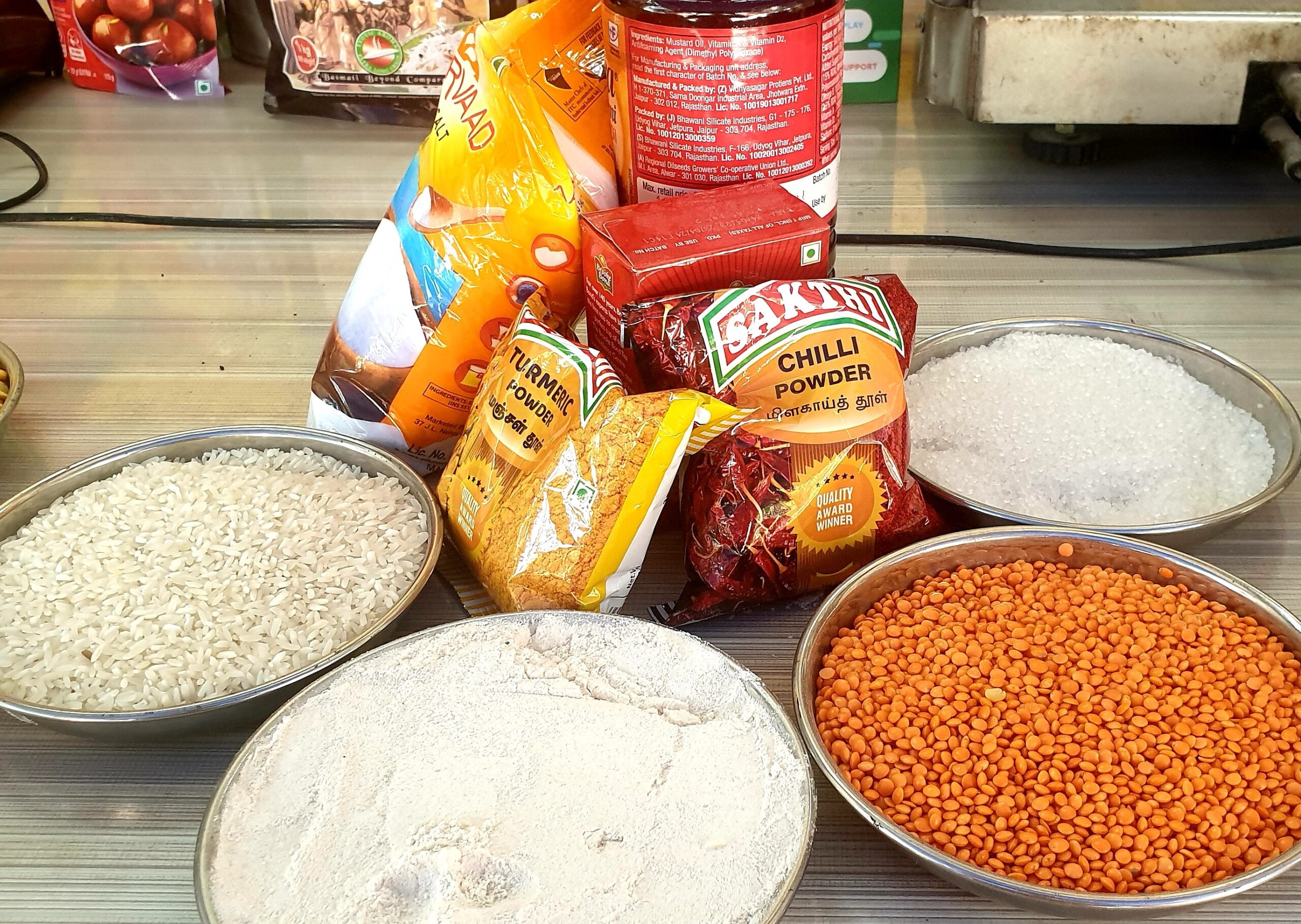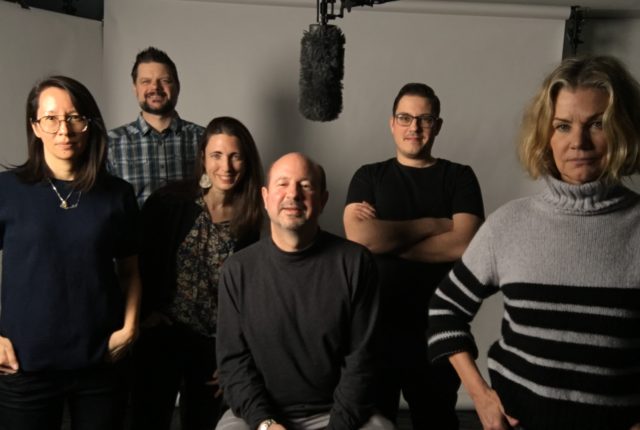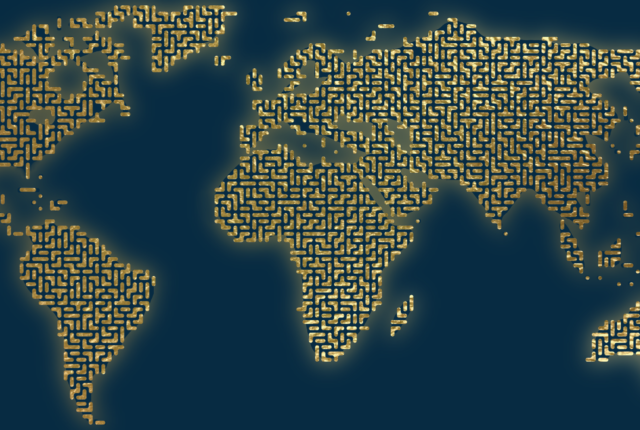By Sabina D’Silva
- 4 Kilos of Rice
- 4 Kilos of Wheat-flour
- 2 Kilos of Dal Lentils
- 1 Liter of Cooking Oil
- Packets of Salt, Turmeric and Chili powder
- A Measure of Tea leaves and Sugar
- 2 Bars of Soap
- Packed with a Lot of Love and a Prayer for the Hungry
- Just Enough food to sustain a Daily Wage Worker’s Family of Four, for a week during Covid times.
And the Cost for this Bag of Food? Rupees 500, in Indian Currency (~ 6 USD).
Also,
- Just Enough money to buy a Medium Sized Pan Pizza for a single meal for two!
- Small Change for India’s Middle-class Metropolitan Communities.
- BIG CHANGE for Indians living on the Margins of Society.
The purchasing power of this relatively small 500 Rupees became visibly evident to me, during the peak of the Covid lockdowns. It was during this time that local communities and social organizations started asking for donations, to feed the many stranded daily wage workers in the major cities. These workers were suddenly without work, and therefore, without their daily wages and any means to feed themselves. Most of these workers were migrants from faraway villages, and not all could travel back to their homes where they had a chance to be fed. Hence, many local communities got creative and put together these Rs. 500 grocery bags, to feed them for just enough time – a week. The donations were crowd-funded through online websites and local WhatsApp groups.
I must admit, I had never shopped for groceries for just a week before! Most of the time, I would stock up for at least a month. And more often than not, it would be purchases of big packs of ‘Buy One-Get One Free’, tempted by the supermarket offers, always ending up buying way more than I needed. Big packets of tea. Bigger packets of rice. Huge bottles of shampoo – all with discounts – were what I always looked out for.
And so the possibility of shopping for smaller quantities had never struck me before. Nor did I have any idea of the minimum cost of food, which might sustain a family of four, with lesser means, for a week.
Only Rs. 500? How could it be? The power in that small currency note had taken me completely by surprise! And I couldn’t stop thinking of all the things it could still buy in today’s times in my country, India!
Our efforts continued in full swing through all the Lockdowns. While some of us donated our money to these crowd-funding initiatives, others got busy sourcing and packing the grocery bags. Small donations trickled in, bit by bit. And minute by minute, the ticker on the funding pages showed that more and more grocery bags were being made. And hundreds of thousands and then millions of daily wage workers and their families got fed. No longer hungry. Just enough food to last for just enough time. Till more funds would come in. And another round of bags would become available for another short length of time. A creative home-grown Indian solution, in some ways resembling the feasibility and the efficiency of the Japanese Kanban system – Just In-Just Out-Just-In-Time.
Participating in this effort and seeing the impact on the ground, transformed me. I became appreciative of Small Efforts and Small Changes. I realized that when communities come together, everyone can be a donor. ‘Micro’ becomes more important than big. ‘Coming together’ becomes more important than mega funders or outside investors. Incremental and continuous efforts become more feasible than one-time payouts. And a community becomes aware of the power that it holds; that a lot can happen through cumulative, collective efforts without necessarily waiting for governmental help. It also becomes aware of the fact that each and every individual counts.
Small, micro, nano, mini, incremental, just enough, community….these became my favorite words.
Post Covid, my purchasing gaze has also changed. I have started noticing every small denomination and the ‘just enough’ quantities that small change can buy. Shampoo sachets for Rs. 2, 50 gms. Loose tea leaves, even a single nail for Rs. 1 instead of a pack of 10 – since buying too many nails might mean that they get rusted before they are used.
India’s poorer communities have powerful design & sustainability lessons to teach us – about living within our means and not hoarding too much – living within just enough! This makes for less wasteful consumption, living with less, and a lower carbon footprint. These lessons can also be drawn into the savings domain, small and incremental savings – over time – amounting to a lot. My world too has changed. I now buy less, waste less, and make do with just enough, and that is very liberating indeed.
This experience also ties in well with what Pope Francis talks about in ‘LAUDATO SI’; it will take all of us to come together to bring about lasting change. His idea of integral human ecology alongside sustainable development is very inspiring, as this puts community and human dignity at the very top, before purely technological or material solutions, which can only have a limited, short-term impact.
Most importantly, it teaches us about the power of a community – For when a community comes together, nothing is impossible. And small change can truly create BIG CHANGE!

Sabina D’Silva
Artist, Poet, and Nature lover at heart. Innovation Consultant and Design Thinker by profession. My focus is on innovation for sustainable development, for corporate, start-up, and governmental projects. I also moonlight as a Curator and Moderator of conversations at public art and literature festivals. The tools I use include trend mapping, ethnography, story-telling, and rapid prototyping. scenario visualization and service design blueprints; and most importantly active listening, dialoguing, negotiation, and conversational skills that put human dignity, communities, and the human person at the center of all solutions. I am keenly working towards a leadership role (and scouting for a potential PhD.), in enabling developing nations such as mine – India, to amalgamate our traditional wisdom with emerging sustainable lifestyles, and emerge as a Climate Change leading nation. This is also the vision inspired by Pope Francis in his encyclical, ‘Laudato Si’. My education includes a Master’s in Strategic Design and Innovation on a full scholarship from the Politecnico di Milan, Italy.




